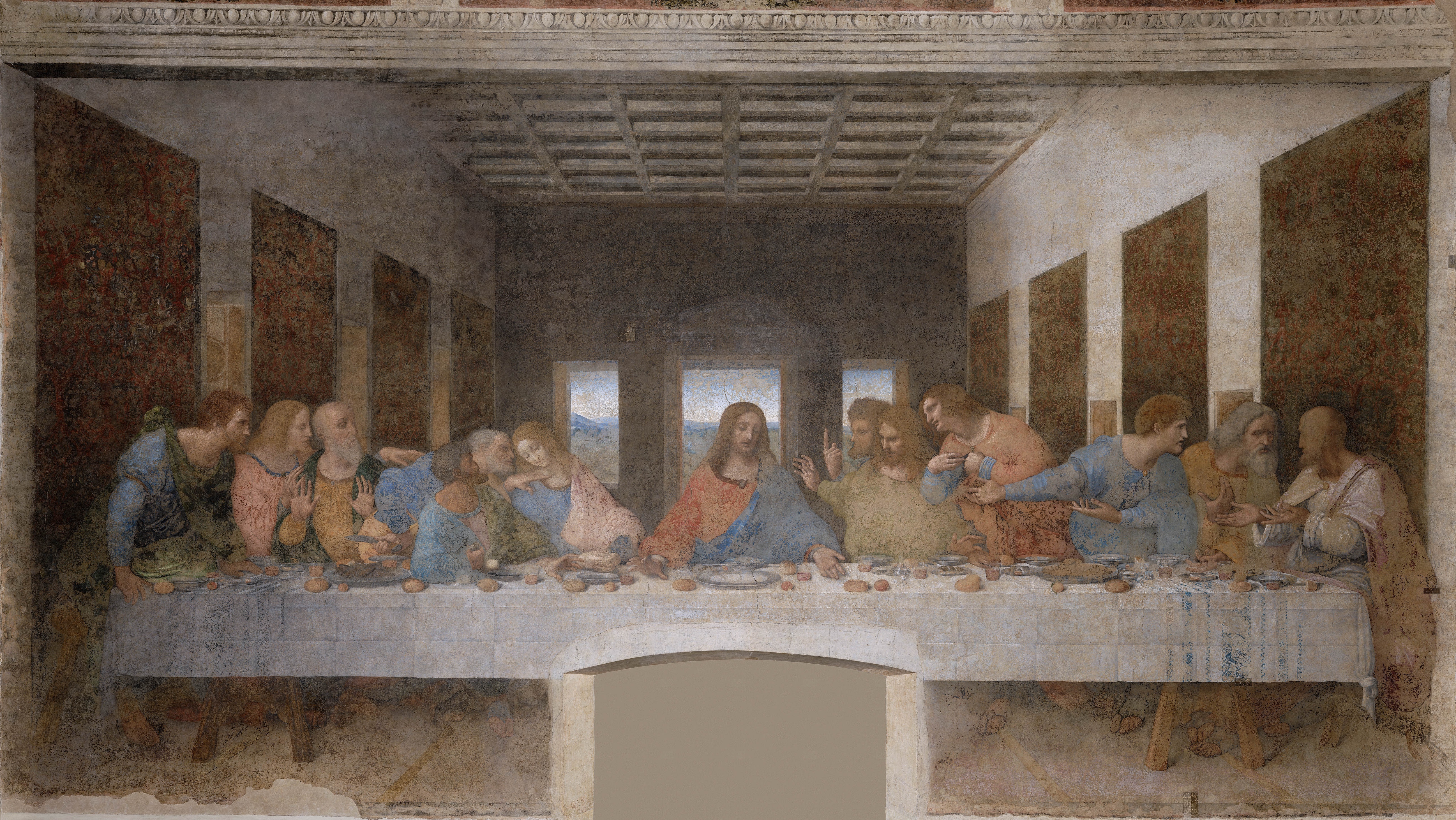So, worship at Grace this week was a bit of an assault on the senses. It was a little like being on the set of TRON, with inspirational banners and praise music designed to go down like soma. Which is fine if you are trying to convey a message about the inevitable future of evolution in which humanity spawns an autonomous digital consciousness, with which we wage war. It seemed like an attempt to integrate as many such circuits into the performance as we could. Oh, I call it a performance because everyone claps afterwards. I have every confidence that certain members of Grace’s leadership have a love for the creation of all things digital. But, do we want our church to resemble mammon driven Times Square? I have my doubts, but I am certain that the discussion has not been had. There was no conversation with the congregation about how the indepth study of the scripture has directed leadership to believe that this is the best way to serve God in worship.
Now in this age, any criticism of anything is swiftly met with “who are you to say?” And Culture has a few answers which trump all others “I’m an expert”, “I have a degree” or “I am famous”. Well it is rarely stated that bluntly but we still seek authority in the institutions of man, which is modernism. Or more recently in postmodern any one preference is invalid because everyone is their own authority.(A good remedy to this type of thinking is C.S. Lewis’, An Experiment in Criticism) Either way, the worship service is not about us, it is about God. It is about conforming our person to his. It is about training our tastes to his. This is the type of thing that happens whether we acknowledge it or not. The church has been directing us, we have become that which we worship. Unfortunately the church has been directed by these worldly ideas. So we think it’s all a matter of ‘taste’ as if our ‘taste’ was trained by God himself, rather than the reality that it was trained by the world. I think leadership can fall into this sin of making the service about the people in subtle ways. They might phrase it thus, “I know the service was God honoring because many people told me they were blessed”. Well that could just be code for “I made the crowd feel good”, ‘blessed’ could simply be another way of saying “it was what I like”. So they direct the worship in ways that brings in those sorts of compliments. Worship is about God.
Worship of God is a serious thing. The first recorded offering to God reiterates this point. In Genesis 4 Cain and Able both make offerings to the Lord. Cain brought an offering of his work which was of the fruit of the ground and Able brought an offering from his work which were sheep from his flock.(These are the 3rd and 4th humans, where are the hunter gatherers? They only exist in the minds of evolutionist and on earth today. They are those who have left God and gone backward. Genesis 4:14 The Bible is clear in the beginning were farmer and shepherds.) God rejected Cains’ offering. That’s about all we get. Cain did not violate any command that we know of. The fruit of the ground was acceptable sacrifice to the Lord later Leviticus 2 . God says “If you do well, will you not be accepted?”
We are not told all the reasons why God rejected Cain. We have to think hard about it. How do we ‘do well’? In light of the New Testament we tend to think all God cares about is the heart. But the well know verse “I desire mercy and not sacrifice, the knowledge of God rather than burnt offerings” Hoseah 6:6, is from the Old Testament. There are other such verses in the Old Testament like Isaiah 1:11. God always wanted the heart, but there is something else in the Old Testament, God did require sacrifice. Not only that he required very specific sacrifices and even enforced these rules. 2 Samuel 6:6 tells the story of the well intentioned Uzzah who was killed for trying to steady the Ark. Worship is careful obedience.
But that was just the Old Testament right? We are under grace, the New Covenant, Christian Liberty, I can do whatever I want. Well, not exactly. The New Testament is full of principles that should guide our heart as well as specifics that should guide our outward worship. It requires hard work and diligence. The evangelical church these days tends to shy away from ‘religion’, it has become a dirty word. But God did not create us wandering spirits, he gave us bodies and prescribed certain ways to behave with those bodies. He gave us the bread and the wine, which is repetitive,is based on a body of Passover tradition, is pregnant with complex metaphor, and both do real actions to us Luke 22:14-23. He instituted baptism which is real water contacting our skin, it really does cleanse and is full of just as much metaphor, it is religious Matthew 28:19. Worship is ordered ritual.

Leonardo Da Vinci, The Last Supper
This is in no way intended to be the whole discussion, it is only the beginning. But we can get a long way in borrowing from wisdom of the past(Oh no here he goes again with the past. Try to think of it as the tested. What is so great about novelty? The problems of the world are all new. The quickest way to be irrelevant is to catch a trend, for it is instantly irrelevant. The church is generally just following the world 20 years behind. Not only do we follow novelty but we follow old novelty. This is the ridiculousness of the TRON cubes). We are not alone, having to reinvent everything from the wheel up, in a world of computers. The church has left a rich legacy of applying Christian faith to every area of life. The sermon last week exhorted us to be so satisfied with the spiritual food of Christ so that we don’t go looking for food in the evils of the world. I think part of our inability to see this rich food is because we limit the effective work of Christ to church time, or religious things. Our time in church at worship is not God time and the rest is our time. It is a first fruits offering Leviticus 23:9-14 or a tithe, indicating that it is all God’s time. Christ is Lord over every area of our lives, not just churchy stuff, everything. I believe the medievals realized this. And tasting of their rich culture makes the TRON scene seem completely inadequate. Walking into one of their cathedrals forces you to sit down in awe. You can actually feel the presence of God. Your little problems and your puny music preferences fade away. You realize you are nothing before a holy God. I don’t know exactly how to pull this off today, I’m sure it can take on many forms. But I know illuminated geometric shapes in a tope enclosure, are not it. And what they do express, the god they point to, is disturbing. So, think more, converse more and maybe we can conform ourselves and our leaders and our worship more and more to Christ.
Further Reading: http://www.amazon.com/Mother-Kirk-Essays-Church-Life/dp/1885767722/ref=sr_1_1?ie=UTF8&qid=1375311423&sr=8-1&keywords=mother+kirk





 This is foolishness. And pretending that teachers don’t teach or exercise authority is merely to guarantee that the world directs these events. I’m glad Philip didn’t tell the Ethiopian, who already had the scripture, that he had all that he needed. Instead he gave him the good news. And the Ethiopian understood and asked to be baptized. This is how God works, he uses human agents. It was human agents who preserved the scripture all these years. They carried it across 2000 years of history and thousands of miles of land and every culture under the sun. It was they who fought battles for orthodoxy. It was they who sought to apply Old and New Testament to every aspect of life and culture. It was WE who threw it all away with silly notions of Cathlophobia.
This is foolishness. And pretending that teachers don’t teach or exercise authority is merely to guarantee that the world directs these events. I’m glad Philip didn’t tell the Ethiopian, who already had the scripture, that he had all that he needed. Instead he gave him the good news. And the Ethiopian understood and asked to be baptized. This is how God works, he uses human agents. It was human agents who preserved the scripture all these years. They carried it across 2000 years of history and thousands of miles of land and every culture under the sun. It was they who fought battles for orthodoxy. It was they who sought to apply Old and New Testament to every aspect of life and culture. It was WE who threw it all away with silly notions of Cathlophobia.

 Icon from the Mégalo Metéoron Monastery in Greece, representing the First Ecumenical Council of Nikea 325 A.D., with the condemned Arius in the bottom of the icon.
Icon from the Mégalo Metéoron Monastery in Greece, representing the First Ecumenical Council of Nikea 325 A.D., with the condemned Arius in the bottom of the icon.